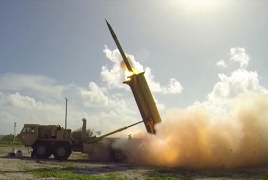
Whether President-elect Donald Trump goes through with a deployment of a U.S. anti-missile system in South Korea will be a key indicator to how political ties unfold with China, sources with ties to the leadership in Beijing said, according to Reuters.
Beijing will also be keeping a close eye on Trump's meeting on Thursday, November 17 with Prime Minister Shinzo Abe of Japan, its key regional rival, for clues on how the President-elect, who has never held public office, is likely to conduct foreign policy, they said.
South Korea and the United States have agreed to deploy a Terminal High Altitude Area Defence (THAAD) anti-missile system to counter missile threats from North Korea. It is expected to be in place within eight to 10 months, the commander of U.S. forces in South Korea said earlier this month.
China has argued the planned deployment undermines strategic stability in Northeast Asia, and worries that THAAD's powerful radar provides coverage of China's missile installations.
"Whether deployment of the Terminal High Altitude Area Defense is delayed is a political weather vane," one source said.
A security adviser to Trump said last week his meeting in New York with Abe on Thursday may mark the start of talks to garner Tokyo's support for a push-back against China's growing influence in Asia.
"We have heard what he said. We will now watch what he does," said the source, requesting anonymity because he is not authorized to speak to media.
"We will play it by ear," the source said, invoking an idiom that translates to blocking a punch or a kick as it comes.

